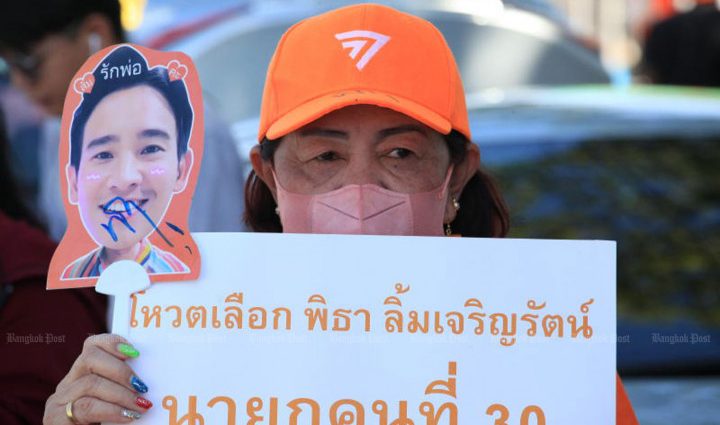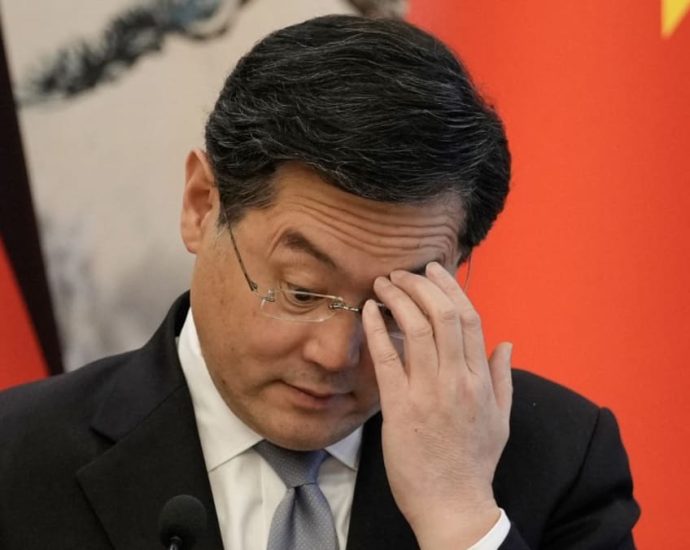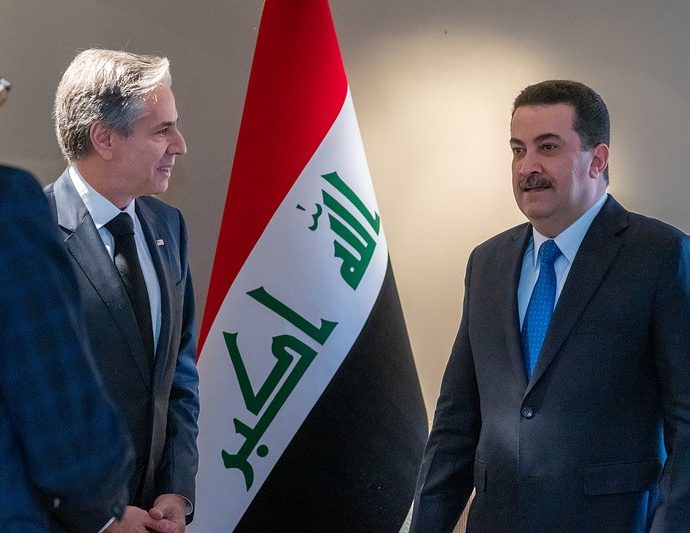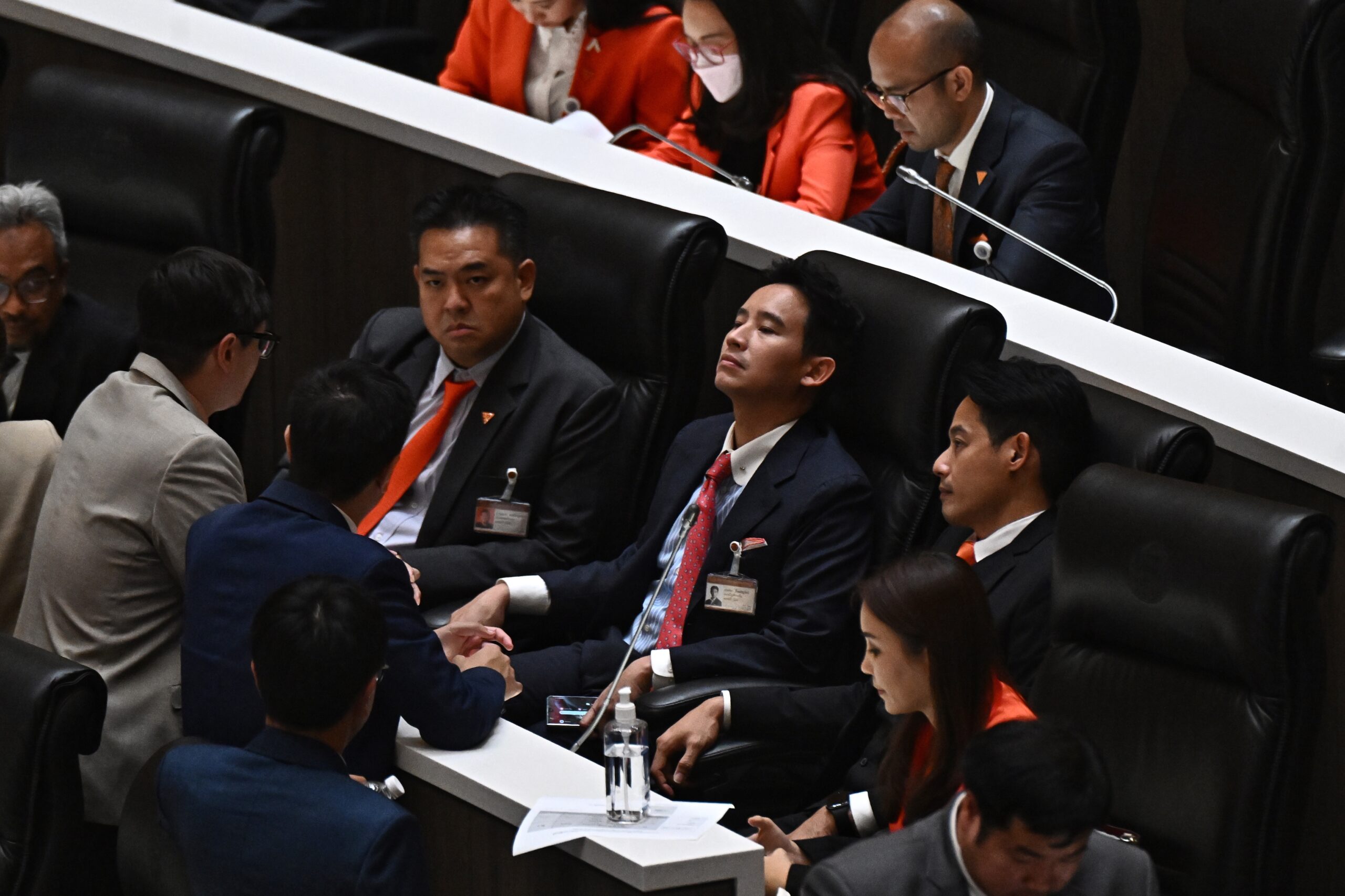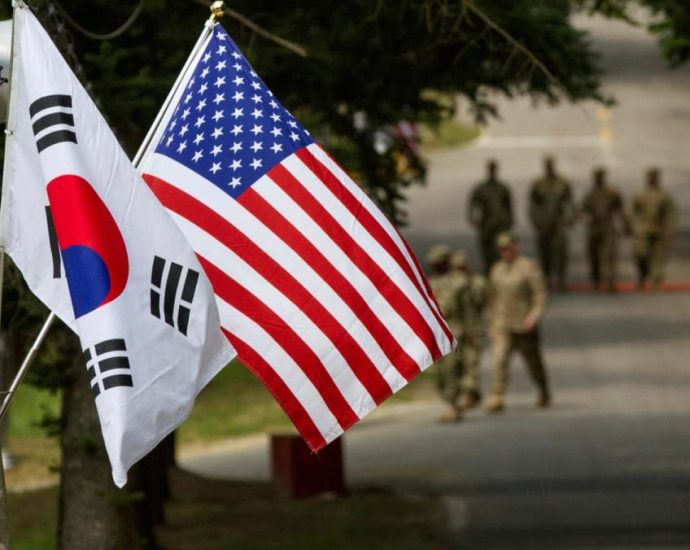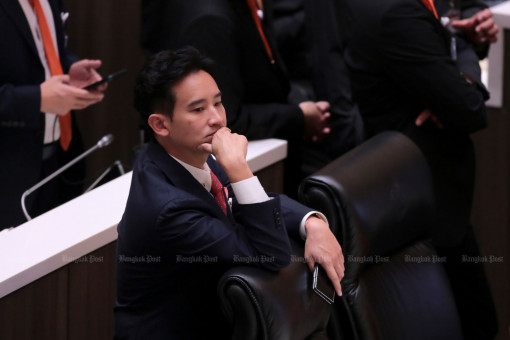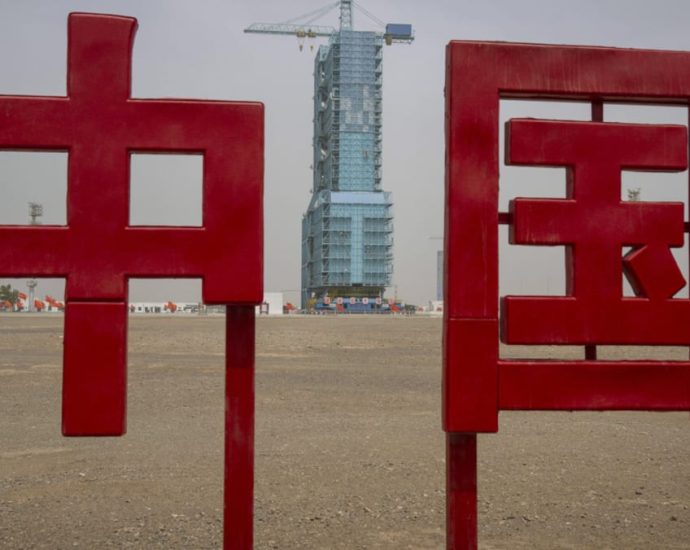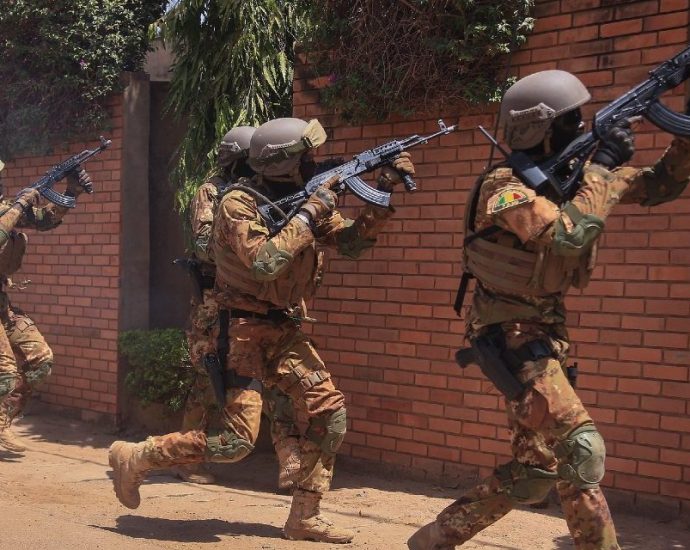Democrats: No talks with MFP about votes
Jurin says MPs will decide on Wednesday how to vote, but lese-majeste law still the sticking point
PUBLISHED : 18 Jul 2023 at 17:01

There have been no talks between the Democrat and Move Forward parties about voting to endorse Pita Limjaroenrat for prime minister on Wednesday in parliament or the formation of a government, outgoing Democrat leader Jurin Laksanawisit said on Tuesday.
Mr Jurin was responding to reports that Chalermchai Sri-on, the party’s acting secretary-general, had told him that he’d been contacted by Move Forward secretary-general Chaithawat Tulanon, who asked Democrat MPs to vote for Mr Pita.
Mr Jurin said he did not know whether Mr Chaithawat had really called. Mr Chalermchai also denied having talked to Mr Chaithawat.
“I would say that there have been no talks about forming a government with the Move Forward Party,” said Mr Jurin, who stood down as leader after the party’s poor showing in the May 14 polls. A vote for a new leader is scheduled for July 23.
Mr Pita fell 51 votes short of the 375 needed in the first prime ministerial vote last Thursday. Since then, political commentators have discussed various scenarios under which he could narrow the gap. One scenario would involve seeking the votes of the 25-member Democrat Party, or even inviting it into the current 8-party coalition.
Mr Jurin reaffirmed the Democrats’ stand against amending Section 112, the lese-majeste law, a key plank in the Move Forward platform.
Democrat MPs opted to abstain from voting on July 13. They plan to meet on Wednesday morning to decide whether to openly vote against Mr Pita’s nomination in the second round, Mr Jurin said.
Mr Jurin was evasive when asked whether the party would join the government coalition if the Pheu Thai Party were to form a government and nominate a prime ministerial candidate. He said he would rather not reply because this had not happened.
He also declined to answer when asked whether the re-nomination of Mr Pita for prime minister would amount to submitting an old motion that had been rejected and go against parliamentary meeting regulations, saying it was a matter for the House speaker to decide.
Speaker Wan Muhamad Noor Matha, addressing reporters after a meeting with party whips and the Senate speaker on Tuesday, said he would not rule until after parliament debates the matter on Wednesday.
Varawut Silpa-archa, the leader of the 10-member Chartthaipattana Party, said there were confusing reports that Move Forward had contacted his party about joining the coalition.
Asked what would happen if Pheu Thai became the core of a new government, Mr Varawut said his party has a firm stand against amending Section 112. It would be negotiable if Pheu Thai did not have a policy to amend the law, he added.
Mr Varawut declined to answer when asked whether Pheu Thai would be able to form a government without the inclusion of Move Forward, saying it was a matter for Pheu Thai to decide.
Commonwealth Games: Australia drop out could be ‘death knell’
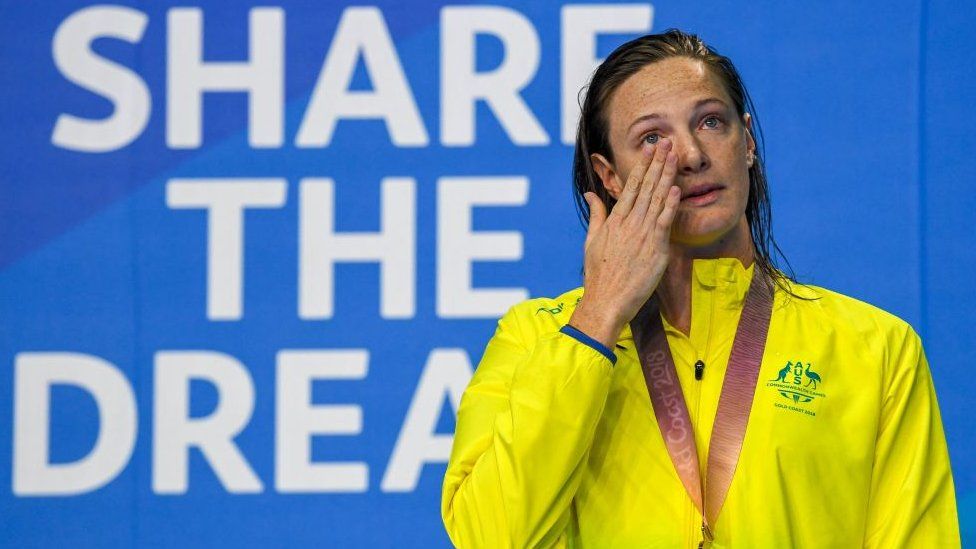 Getty Images
Getty ImagesFifteen months ago, a proud Daniel Andrews strode into a regional Australian stadium and announced Victoria state would host the 2026 Commonwealth Games – promising “a games like no other”.
But on Tuesday Mr Andrews – decidedly less jubilant – faced a media pack as he tersely revealed the state he leads would walk away from its contract.
It throws plans for the event into chaos and the future of the Games into doubt.
After a tough few years for organisers, experts say this could be the final straw.
“This could spell the end of the Commonwealth Games,” says Steve Georgakis, a sports studies lecturer at the University of Sydney.
“It could be a death knell,” Australian sports historian Matthew Klugman agrees.
How did we get here?
Finding a host for the 2026 Games was always a struggle.
The Commonwealth Games Federation (CGF) had originally aimed to name a city in 2019, but hopeful bidders fell like dominoes – mostly over cost concerns – leaving organisers unable to lock in a host until three years later.
Mr Andrews, the state’s premier, says organisers had approached his government, and initially they were “happy to help out”.
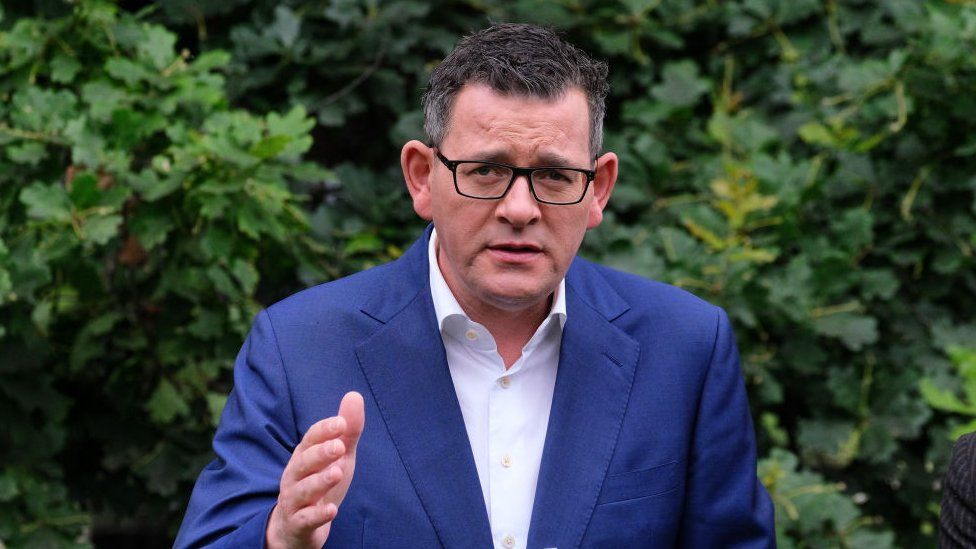
The event was supposed to be a massive boost for the regional cities hosting it, at a cost of A$2.6 billion (£1.4bn; $1.8bn).
But the cost of staging the 12-day Games had ballooned to more than A$6bn, Mr Andrews said.
“I’ve made a lot of difficult calls, a lot of very difficult decisions in this job. This is not one of them,” he told reporters.
The CGF say they were blindsided by Victoria’s decision, and dispute the estimates.
The body also cited the state’s “unique regional delivery model” as the primary reason behind rising costs.
CGF’s Australian arm – Commonwealth Games Australia (CGA) – said they’d look to convince other state governments that the numbers were a “gross exaggeration” and the investment is sound.
“We are taking advice on the options available to us and remain committed to finding a solution for the Games in 2026 that is in the best interest of our athletes and the wider Commonwealth Sport movement,” CGF said in a statement.
But this is a sadly familiar problem for the CGF.
It struggled to find viable takers for the 2022 event too.
Durban was supposed to be the first city in Africa to stage the Games, but were stripped of hosting rights in 2017 after running into money troubles and missing key deadlines.
Nine months later, Birmingham and the British government intervened to save the event, stumping up a combined $1bn for what became the best attended Commonwealth Games on record.
Now just three years out from the 2026 Games – a short window in which to pull together a global, multi-sport event – the CGF is hunting for a saviour.
But it looks like an uphill task.
Already, the leaders of every other Australian state have ruled out picking up the tab.
Western Australia’s premier Roger Cook called the event “ruinously expensive”, saying “the Commonwealth Games aren’t what they used to be”.
And while New South Wales was widely seen as the most viable Australian alternative due to its existing infrastructure, its premier Chris Minns said, “hosting the Commonwealth Games would be something nice to do. Schools and hospitals are must do’s”.
Australia’s last host city – the Gold Coast, which held the event in 2018 – says it would be “impractical to think that any city could step in now with such a short timeframe”.
And even if it was possible, few countries have the means.
Just one Games has been held outside the UK or Australia in the last 20 years – the 2010 outing in the Indian capital, Delhi.
Originally expected to cost $270m, India ended up spending 16 times that – almost $4.1bn.
Australia is one of the richest nations in the Commonwealth, and, Dr Georgakis says, historically the event’s most enthusiastic supporter.
“If Australia can’t host the Games, well, what chance does one of the small former colonies have?”
Dwindling relevancy
But it isn’t just cost at play here.
Critics of Victoria’s decision point out the state blows a lot of money on similar global sporting events – for example, it’s spending millions to jointly host the FIFA Women’s World Cup, which begins on Thursday.
Mr Andrews anticipated this, repeatedly stressing that the 2026 Games just didn’t deliver a “return on investment” like other events.
“[It’s] all cost and no benefit,” he said.
Experts say the competition’s global image and perceived relevance are waning.
Firstly, the event doesn’t attract the same star power it used to.
Last year several leading names opted to miss the Games, including British diving champion Tom Daley, Australian swim darling Cate Campbell, and track stars Andre de Grasse, Shelly-Ann Fraser-Pryce and Shericka Jackson.
Sprinting great Usain Bolt once reportedly made a disparaging remark about the event – he claims he was misquoted, even though the journalist published a transcript.
“There’s much less interest than there used to be,” says Dr Klugman.
“It’s not the phenomenon that it was even in the 1990s. It does reflect a changing world.”
Part of that changing world is a growing indifference to the original purpose of the Games.
Initially called the Empire Games when they began in 1930, the competition was a tool to keep the colonies of Britain together, historians say.
“And in an empire that’s starting to crack under a whole heap of challenges, it is still seen as a chance to maintain and solidify power,” Dr Klugman says.

But more and more former colonies are distancing themselves from Britain, with many either becoming republics or, like Australia, weighing it up.
“The Australia of 1938 is very different to Australia in 2023,” said Dr Georgakis.
“It’s hard to get people that are not from a British background buying into this concept of uniting Australia with the mother country and the other former colonies.”
Combined with that is heightened awareness and scrutiny over the colonial history of the competition.
In 1982 the games were branded the “Stolenwealth Games” by Indigenous Australians, a moniker it hasn’t been able to shake.
“It’s called Stolenwealth for a good reason,” says Klugman. “These were the places where value was extracted and taken back to the heart of the empire.”
And with Australia in the grips of both a cost of living crisis and a debate over recognising its Indigenous people in the constitution, some say pouring billions into the Games would be a terrible look.
A ‘strategic’ rebrand
The CGF knows it is in a fight for the Games’ survival.
Its president, Dame Louise Martin, in 2018 said it was facing an “existential crisis”.
“In recent times, our federation has done a lot of soul-searching to look at our impact and meaning,” she said.
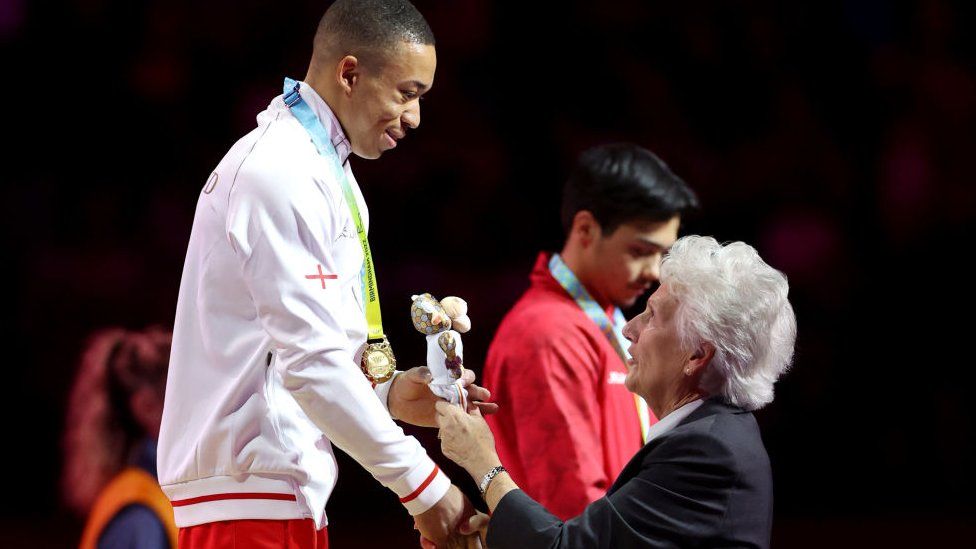
And in a strategic plan covering the next decade the organisation said: “There is no easy way of saying the Commonwealth has a challenging history linked to colonial roots.”
“Work has already started to alter the focus from the hegemony of the British Empire to one of global peace.”
It is unclear what that means practically.
But for all the questions of its relevance, the Games remain deeply important to the athletes that compete.
For many sports like netball, it is the pinnacle of their competition, and many athletes have expressed deep disappointment at the decision.
Race walker Jemima Montag says it has robbed her of the opportunity of winning a third gold medal in front of a home crowd.
And Australian swimmer Rowan Crothers points out the cancellation is particularly painful for people with disabilities.
The Commonwealth Games is the only major international competition that features athletes with a disability alongside able-bodied athletes.
“[It’s] a great opportunity to raise awareness for disabled sport. Seeing the Games cancelled will suck for the state of inclusion,” he wrote on Twitter.
“For some athletes, a gold medal at the Commonwealth Games means more than a gold medal at the Paralympics… recognition and equality can mean more than achievement.”
Related Topics
Where is Qin Gang? Chinese foreign minister not seen in public for three weeks
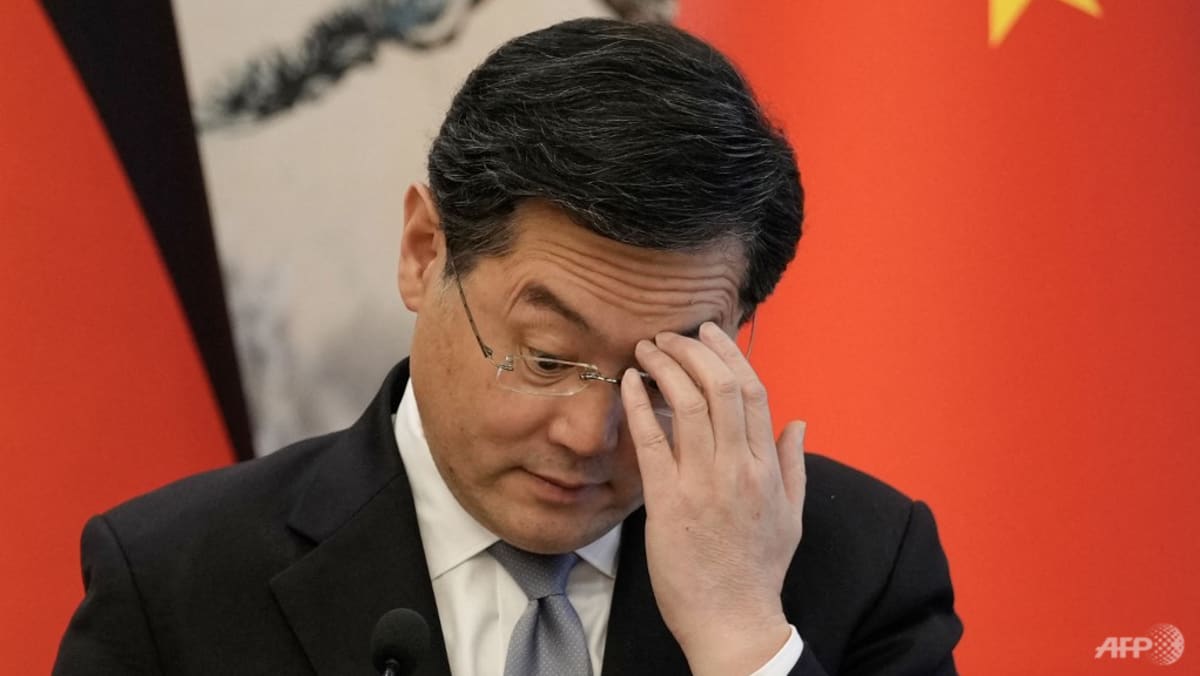
Chinese foreign minister Qin Gang has not been seen in public for about three weeks, fuelling speculation about his absence and rumours of an extramarital affair.
The 57-year-old did not attend an ASEAN summit in Jakarta last week, with a ministry spokesperson saying on Jul 11 that he is skipping the meetings due to “health reasons”.
According to China’s Ministry of Foreign Affairs, Qin’s last public engagements were with officials from Vietnam, Sri Lanka and Russia in Beijing on Jun 25.
He also held “candid, in-depth and constructive” talks with US Secretary of State Anthony Blinken on Jun 18, amid strained ties between the world’s two largest economies.
He has yet to be seen attending official engagements since. Here’s what is known about Qin Gang and his rise to become China’s foreign minister.
WHO IS QIN GANG?
A trusted aide of President Xi Jinping, Qin was appointed China’s foreign minister in December 2022. The Tianjin native took over the role from top diplomat Wang Yi, who has been the face of Chinese diplomacy since 2013.
Prior to his role as foreign minister, Qin served as China’s ambassador to the United States in 2021.
His stint lasted 17 months, compared with his predecessor Cui Tiankai who held the role for eight years.
Qin has held various positions in China’s foreign ministry, including two runs as ministry spokesman between 2005 and 2014. He also worked closely with Xi when he was chief protocol officer between 2014 and 2018.
“WOLF WARRIOR”
As a ministry spokesman, Qin stood out among his peers for being one of the earliest Chinese diplomats to make sharp comments in defence of China’s increasingly assertive foreign policy – what later became known as “wolf warrior” diplomacy.
The “wolf warrior” nickname is given to Chinese diplomats who respond vehemently to Western nations they perceive as hostile.
Thailand’s prime minister turmoil
Hello Globe readers,
This week, the world has its eyes on Thailand as the resignation of former Prime Minister Prayuth Chan-ocha and the challenges around the selection of his successor leaves the public on pins and needles.
On 13 July, a parliamentary debate resulted in the rejection of opposition Move Forward Party leader Pita Limjaroenrat as the new prime minister. Although expected, the vote sparked widespread protests across the country. The Thai parliament will gather to cast their next vote for prime minister on 19 July.
While Thai citizens await the final decision, government institutions are facing an increased number of cyber infiltrations as groups of hackers target the region to steal key military information. Some experts believe the attacks, sourced to entities known as either Dark Pink or Ocean Buffalo, originated in Vietnam, but only an international investigation into the crimes will reveal the truth.
Vietnam has recently been facing another threat. The country’s few remaining wild elephants have been clashing with local farmers over food and land, leading to often-fatal interactions for the endangered giants. With only about 100 remaining across the entire country, they’re on the brink of a population spiral.
Last but not least, this week the Globe spoke with survivors of Singapore’s failed prison experiment that resulted in a deadly riot six decades ago nearly to the day. The chaos on Pulau Senang happened on the cusp of Singapore’s independence and faded from public memory, but a recent documentary dredged up the alleged abuse and corruption that undermined the project and led to its collapse.
That’s all for today, may you have a wonderful weekend and enjoy the features!
Latest
Environment
–
Cybercrime
–
US nuclear missile submarine visits South Korea as allies talk war planning
SEOUL: For the first time since the 1980s a US nuclear-armed ballistic missile submarine (SSBN) visited South Korea on Tuesday (Jul 18), as the allies launched talks to coordinate their responses in the event of a nuclear war with North Korea. White House Indo-Pacific coordinator Kurt Campbell confirmed the rareContinue Reading
Talks fail: No accord on Pita’s renomination
Issue to be debated at Wednesday’s joint sitting
PUBLISHED : 18 Jul 2023 at 16:04

Representatives of the coalition allies, other political parties and senators cannot agree on the legality of Pita Limjaroenrat’s renomination for prime minister and the joint parliament will debate the issue on Wednesday, when the second round of voting is scheduled.
House Speaker Wan Muhamad Noor Matha, as ex-officio president of the parliament, convened a meeting of representatives of the three sides on Tuesday to discuss whether the leader of the election-winning Move Forward Party could be renominated on Wednesday, after the joint session rejected him on July 13.
After the two-hour meeting, Mr Wan said the three groups could not reach a conclusion and the matter would be debated in parliament on Wednesday. The party whips had been instructed to ensure the joint sitting remains orderly.
Mr Wan set Wednesday for the second round of voting for prime minister after Mr Pita failed to obtain a majority vote last Thursday.
Mr Wan said that on Tuesday some participants disagreed with the renomination, pointing out that a parliamentary regulation prohibited the resubmission of a failed motion during the same parliamentary session period.
Others thought Mr Pita’s nomination could be resubmitted on Wednesday, because it was not an ordinary motion, he said.
Therefore, Mr Wan said, he would let parliamentarians debate the matter on Wednesday, when Mr Pita will again be nominated by the eight-party coalition supporting him. He would closely follow the debate before deciding on the legality of the renomination.
The parliament president expected the debate to take about two hours. The joint sitting would start at 9.30am on Wednesday. “I don’t think the debate will be prolonged,” he said.
Asked if another candidate could be nominated right away on Wednesday, Mr Wan said parliamentary regulations do not prevent that.
“The process is for the quick installation of the 30th prime minister, because the nation is waiting for a new prime minister to solve its problems,” Mr Wan said.
China may launch next-generation crewed spacecraft as early as 2027
BEIJING: China’s next-generation crewed spacecraft, which can transport up to seven astronauts, may fly for the first time between 2027 and 2028, a veteran Chinese astronaut said. China’s manned space flights began in 2003 when former fighter pilot, Yang Liwei, was sent into orbit in a small bronze-coloured capsule, theContinue Reading
4m speed pills seized in Khon Kaen
Detained driver said he was to be paid B80,000 to transport drugs to Saraburi
PUBLISHED : 18 Jul 2023 at 15:57

KHON KAEN: A drug courier has been arrested with than 4 million speed pills seized in Phon district of this northeastern province.
Kittisak Manas, 49, of Saraburi province, was arrested after police stopped and searched the Honda CR-V with Bangkok licence plates that he was driving at a checkpoint in Phon district of Khon Kaen.
Police had obtained information earlier that a large quantity of speed pills would be smuggled from Pak Khat district of Bueng Kan province into the Central Plains, said Pol Lt Gen Yanyong Vejosot, chief of Provincial Police Region 4. Smuggling gangs often made their runs on weekends, said Pol Lt Gen Yanyong.
Police then set up road checkpoints in areas under the jurisdiction of Region 4 to search suspected vehicles.
On Saturday, officers spotted a suspected Honda CR-V arriving at a checkpoint in front of Phon Hospital on Mittraparb Road in Phon district. The driver tried to abandon the car but he was detained.

Senior officers stand next to the seized drugs at a media briefing in Khon Kaen on Tuesday. (Photo: Chakrapan Natanri)
A search found 10 fertiliser sacks inside the vehicle. They contained 4.07 million speed pills.
During questioning, Mr Kittisak told police that he was unemployed and had come to know a man aged 50 at a food shop in Saraburi. He met the man on several occasions and they became close. The man offered him a job to drive the CR-V from Bueng Kan to deliver to a customer in Saraburi for 80,000 baht.
Mr Kittisak said he took the job and went to Bueng Kan on Friday. He drove it along Mittraparb Road heading to Saraburi on Saturday morning before seeing the police checkpoint in Phon district.
He claimed he was not aware the fertiliser sacks contained drugs, adding that it was the first time he had done this kind of work, said Pol Lt Gen Yanyong.
Mr Kittisak has been held in police custody at Phon police station for legal action. The investigation is being expanded to arrest other people involved.
From ‘very quiet’ newcomer to Tampines GRC MP: Cheng Li Hui’s career before resigning over affair

According to media reports, Ms Cheng’s hobbies include brisk walking and exercising in the gym.
“From being a girl scout to assisting at Meet-the-People sessions since 2003, helping people has been such an integral part of my life. In a way, politics is the next phase,” she told ST.
“Whether it’s volunteering or working in the office, I interact with a lot of people. I’d like to think I’m not too bad at interaction and that’s really important.”
2. HER BUSINESS BACKGROUND
Ms Cheng was previously the deputy chief executive officer and executive director of engineering firm Hai Leck Holdings, which was founded by her father Cheng Buck Poh.
She then became a non-executive, non-independent director of the company in Jan 2018, before stepping away from the role in Oct 2019.
In addition, Ms Cheng is also an independent director of Sheng Siong, having been appointed in December 2021.
She also served on the board of NTUC Foodfare in 2019, before it merged with NTUC Fairprice in September that year.
3. A “TALK LESS, DO MORE” PERSON
Ms Cheng was fielded in PAP’s Tampines GRC team during the 2015 General Election. Along with Mr Baey Yam Keng, Mr Desmond Choo, Dr Koh Poh Koon and Mr Masagos Zulkifli, she was elected to Parliament with about 72 per cent of votes.
Ms Cheng took over from former Cabinet minister Mah Bow Tan, who described her as “talk less, do more” type of person.
“She’s also very quiet that sometimes people don’t know that things get done,” said Mr Mah at the unveiling of PAP’s team for Tampines in 2015.
Guns for hire: a season for mercenaries

After a band of mercenaries tried to oust the government in Maldives back in 1988, I asked a Maldivian diplomat, using a familiar military catchphrase, about the strength of his country’s “standing army.”
“Standing army?” the diplomat asked with mock surprise, and remarked perhaps half-jokingly, “We don’t even have a sitting army.”
With a population of about 250,000 around that time, Maldives was one of the few countries with no fighter planes, combat helicopters, warships, missiles, or battle tanks – an open invitation for mercenaries and freelance military adventurers.
As a result, the island nation’s fragile defenses attracted mercenaries and bounty hunters who tried to take over the country twice – once in 1979, and a second time in 1988.
Although both attempts failed, the Indian Ocean archipelago refused to drop its defenses. It not only initiated a proposal seeking a UN security umbrella to protect the world’s militarily vulnerable mini-states but also backed the 1989 “International Convention against the Recruitment, Use, Financing and Training of Mercenaries.”
In the US, a mercenary is called a “soldier of fortune,” which is also the title of a widely circulated magazine, subtitled the “Journal of Professional Adventurers.”
The adventures – and misadventures – of mercenaries have also been portrayed in several Hollywood movies, including The Dogs of War, Tears of the Sun, The Wild Geese, The Expendables, and Blood Diamond, among others.
Wagner hits the headlines
When the Russian Wagner Group hit the front pages of newspapers worldwide, it was described as a private mercenary group fighting in Ukraine.
The New York Times said on June 30 that the Wagner Group provided security to African presidents, propped up dictators, violently suppressed rebel uprisings, and was accused of torture, murder of civilians, and other abuses.
But the recent failed coup attempt by Wagner threatened, for a moment, the very existence of the group.
A military adviser to an African president dependent on mercenaries implicitly linked the name of the group to the German composer Richard Wagner.
And the official was quoted as saying, “If it is not Wagner any more, they can send us Beethoven or Mozart, it doesn’t matter. We’ll take them.”
A July 14 report on CNN quoted a Kremlin source as saying the Wagner Group, which led a failed insurrection against Russian President Vladimir Putin in June, was never a legal entity and its legal status needs further consideration.
“Such a legal entity as PMC Wagner does not exist and never existed. This is a legal issue that needs to be explored,” Kremlin spokesnan Dmitry Peskov said.
Peskov refused to disclose any further details on the meeting between Wagner head Yevgeny Prigozhin and Putin that reportedly took place several days after the aborted rebellion in June.
Besides Ukraine, mercenaries have been fighting in Central Africa, Mali, Syria, Yemen, Iraq and Libya. In Syria, there was a paramilitary group called the Slavonic Corps providing security to President Bashar al-Assad battling a civil war – followed later by the Wagner Group.
And in Mali, there were more than 1,500 mercenaries fighting armed groups threatening to overthrow the government.
US frowns on mercenaries – sometimes
Ironically, the US, which used the Blackwater Security Consulting Group during the American occupation of Iraq, has imposed sanctions on several African nations deploying mercenaries.
US Secretary of State Antony Blinken said early this month that the United States was imposing sanctions on several entities in the Central African Republic for their connection to what he called the transnational criminal organization known as the Wagner Group and “for their involvement in activities that undermine democratic processes and institutions in the CAR through illicit trade in the country’s natural resources.”
“We are also designating one Russian national who has served as a Wagner executive in Mali,” Blinken said. “Wagner has used its operations in Mali both to obtain revenue for the group and its owner, Yevgeny Prigozhin, as well as to procure weapons and equipment to further its involvement in hostilities in Ukraine.”
The United States has also issued a new business risk advisory focused on the gold industry across sub-Saharan Africa. Specifically, the advisory highlights “how illicit actors such as Wagner exploit this resource to gain revenue and sow conflict, corruption, and other harms throughout the region.”
Death and destruction have followed in Wagner’s wake everywhere it has operated, and the United States will continue to take actions to hold it accountable, Blinken said.
Stephen Zunes, professor of politics and international studies at the University of San Francisco, told Inter Press Service (IPS) it is certainly good that the United States is finally taking leadership in opposing the use of mercenaries.
The Iraq war, which then-senator Joe Biden strongly supported, relied heavily on the use of mercenaries from the Blackwater group. Similarly, during the Cold War, the US Central Intelligence Agency used mercenaries to support its military objectives in Latin America, Southeast Asia, and sub-Saharan Africa.
“Whether such actions targeting the Wagner Group is indicative of an actual shift in US policy or simply a means of punishing a pro-Russian organization remains to be seen,” Zunes said.
Simon Adams, president and chief executive of the Center for Victims of Torture, told IPS that throughout history, big powers have often used mercenaries. From trying to hold back anti-colonial struggles to the horrors of the Cold War in Latin America or Africa, there is nothing new in that.
“But I think the big change is that the international community has become more intolerant of these guns-for-hire and privatized armies who believe that they can operate outside of international humanitarian law, and are often rampant abusers of human rights,” he said.
And it is much harder these days for their state sponsors to deny responsibility for their actions, he added.
The Wagner Group has been implicated in numerous atrocities in Ukraine, the CAR, and a number of other places, he said.
“They deserve all the opprobrium that has been heaped upon them. The challenge now is not just to sanction them, and to try to hold the main war criminals accountable under international law.”
The bigger challenge is to ensure that no other big state or major power engages in these same nefarious practices the next time it suits their own partisan interests to do so, Adams said.
Meanwhile, according to an article in the National Defense University Press, private force has become big business, and global in scope. No one truly knows how many billions of dollars slosh around this illicit market.
“All we know is that business is booming. Recent years have seen major mercenary activity in Yemen, Nigeria, Ukraine, Syria and Iraq. Many of these for-profit warriors outclass local militaries, and a few can even stand up to America’s most elite forces, as the battle in Syria shows.”
The Middle East is awash in mercenaries. Kurdistan is a haven for soldiers of fortune looking for work with the Kurdish militia, oil companies defending their oilfields, or those who want terrorists dead, according to the article.
“Some are just adventure seekers, while others are American veterans who found civilian life meaningless. The capital of Kurdistan, Irbil, has become an unofficial marketplace of mercenary services, reminiscent of the Tatooine bar in the movie Star Wars – full of smugglers and guns for hire.”
This article was provided by the Inter Press Service / Globetrotter News Service.

